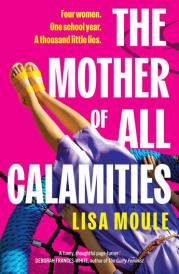Stuck On You: The Psychology Behind Toxic Love and The New Tool Helping Aussies Decode Relationships

In Australia, one in five (20%, or 3.8 million) people have experienced physical or sexual family and domestic violence, while 2.3 million women and 1.3 million men have experienced emotional abuse by a partner.
In fact, one in two women who experienced physical and/or sexual violence from a current partner did not seek advice or support about the violence.
To help Australians recognise a toxic relationship or trauma bond, Online Psychologists Australia (OPA) is launching a new resource, Red Flag Radar: A Relationship Self-Assessment – a guide for recognising manipulation and reclaiming control.
With one quarter (23%) of women and one in six (14%) men having experienced emotional abuse by a partner1, Australians are being urged to learn the signs of toxic relationships with the launch of a new, expert-designed guide, Red Flag Radar: A Relationship Self-Assessment.
Sadly, Australia remains deep in a domestic and family violence (DFV) crisis, with fourteen women already killed due to partner violence this year2, in addition to the 3.8 million Australians (20% of the population) who have experienced physical and/or sexual DFV3.
However, despite the prevalence of abuse in Australia, reporting remains critically low, with two in five women (37% or 574,000) and two in five men (39% or 166,000) who had experienced physical and/or sexual violence not seeking advice or support about the violence1.
Sadly, psychologists say the lack of reporting and help-seeking behaviours is driven in part by 'trauma bonding', a psychological response to abuse, where victims form strong emotional attachments to their abusers, creating a dependency on their abuser.
According to Sarah Richardson, CEO of Online Psychologists Australia, the trauma bonding response is underpinned by patterns of coercive control behaviours, which make it difficult for victims to leave.
"Trauma bonding occurs when someone is stuck in a cycle of abuse that's followed by moments of affection or regret from the abuser. These patterns can leave the person feeling guilty or responsible, making it harder for them to feel confident leaving the relationship.
"Over time, the abuse can escalate, while the kind or regretful moments become fewer. Understanding this pattern is key to recognising unhealthy relationships and finding a way to break free," says Ms Richardson.
To help Australians recognise a toxic relationship or trauma bond and provide them with the tools to break the cycle, Online Psychologists Australia's (OPA) new resource, Red Flag Radar: A Relationship Self-Assessment states trauma bonding responses typically occur when abusers utilise patterns of manipulation against their victim. This can include:
1. Controlling behaviours: This includes behaviours which aim to take control of an individual's time, space or freedom, and commonly manifests as monitoring of devices or location, preventing contact with family or friends, or forcing financial dependence.
2. Critical behaviours: This describes when someone is controlling their partner through constant criticism. This makes the victim feel like they deserve their treatment or have nowhere else to go, and commonly presents as mocking, ridicule or embarrassment.
3. Gaslighting behaviours: Gaslighting behaviours describe when an individual is made to doubt their own understanding of a situation to appear unreasonable. This can include actions which shift the blame, provide conditional affection as a reward for 'good behaviour', or use of phrases such as 'you're too sensitive' to create doubt in their mind.
"While abuser behaviours play a big role in the development of trauma bonds, the individual's own experiences with relationships may impact their perception of what is healthy, which can contribute to the development of a trauma bond4. As such, breaking free from a trauma bond is a challenging and intricate journey that requires professional guidance and solid support.
"Reaching out for support by asking a trusted friend for their honest opinion or bringing in an external third party can help individuals understand things from a different and objective perspective. At OPA, we prioritise therapeutical interventions which can help individuals recognise the existence of trauma bonds and abusive dynamics at play. Through working with an experienced psychologist, individuals can reconnect with their authentic self and develop new boundaries and communication skills which help them move towards healthier relationships." concludes Ms Richardson.
In line with Domestic & Family Violence Prevention Month (May) Online Psychologists Australia is encouraging Australians to learn the signs of toxic and abusive relationships, through the new self-assessment tool. By identifying patterns of trauma bonding in relationships, individuals can take the first step towards greater relationship and self-development. To access the new guide, find additional support on breaking free from a toxic relationship or schedule a psychologist appointment, visit https://www.onlinepsychologist.com.au/
In fact, one in two women who experienced physical and/or sexual violence from a current partner did not seek advice or support about the violence.
To help Australians recognise a toxic relationship or trauma bond, Online Psychologists Australia (OPA) is launching a new resource, Red Flag Radar: A Relationship Self-Assessment – a guide for recognising manipulation and reclaiming control.
With one quarter (23%) of women and one in six (14%) men having experienced emotional abuse by a partner1, Australians are being urged to learn the signs of toxic relationships with the launch of a new, expert-designed guide, Red Flag Radar: A Relationship Self-Assessment.
Sadly, Australia remains deep in a domestic and family violence (DFV) crisis, with fourteen women already killed due to partner violence this year2, in addition to the 3.8 million Australians (20% of the population) who have experienced physical and/or sexual DFV3.
However, despite the prevalence of abuse in Australia, reporting remains critically low, with two in five women (37% or 574,000) and two in five men (39% or 166,000) who had experienced physical and/or sexual violence not seeking advice or support about the violence1.
Sadly, psychologists say the lack of reporting and help-seeking behaviours is driven in part by 'trauma bonding', a psychological response to abuse, where victims form strong emotional attachments to their abusers, creating a dependency on their abuser.
According to Sarah Richardson, CEO of Online Psychologists Australia, the trauma bonding response is underpinned by patterns of coercive control behaviours, which make it difficult for victims to leave.
"Trauma bonding occurs when someone is stuck in a cycle of abuse that's followed by moments of affection or regret from the abuser. These patterns can leave the person feeling guilty or responsible, making it harder for them to feel confident leaving the relationship.
"Over time, the abuse can escalate, while the kind or regretful moments become fewer. Understanding this pattern is key to recognising unhealthy relationships and finding a way to break free," says Ms Richardson.
To help Australians recognise a toxic relationship or trauma bond and provide them with the tools to break the cycle, Online Psychologists Australia's (OPA) new resource, Red Flag Radar: A Relationship Self-Assessment states trauma bonding responses typically occur when abusers utilise patterns of manipulation against their victim. This can include:
1. Controlling behaviours: This includes behaviours which aim to take control of an individual's time, space or freedom, and commonly manifests as monitoring of devices or location, preventing contact with family or friends, or forcing financial dependence.
2. Critical behaviours: This describes when someone is controlling their partner through constant criticism. This makes the victim feel like they deserve their treatment or have nowhere else to go, and commonly presents as mocking, ridicule or embarrassment.
3. Gaslighting behaviours: Gaslighting behaviours describe when an individual is made to doubt their own understanding of a situation to appear unreasonable. This can include actions which shift the blame, provide conditional affection as a reward for 'good behaviour', or use of phrases such as 'you're too sensitive' to create doubt in their mind.
"While abuser behaviours play a big role in the development of trauma bonds, the individual's own experiences with relationships may impact their perception of what is healthy, which can contribute to the development of a trauma bond4. As such, breaking free from a trauma bond is a challenging and intricate journey that requires professional guidance and solid support.
"Reaching out for support by asking a trusted friend for their honest opinion or bringing in an external third party can help individuals understand things from a different and objective perspective. At OPA, we prioritise therapeutical interventions which can help individuals recognise the existence of trauma bonds and abusive dynamics at play. Through working with an experienced psychologist, individuals can reconnect with their authentic self and develop new boundaries and communication skills which help them move towards healthier relationships." concludes Ms Richardson.
In line with Domestic & Family Violence Prevention Month (May) Online Psychologists Australia is encouraging Australians to learn the signs of toxic and abusive relationships, through the new self-assessment tool. By identifying patterns of trauma bonding in relationships, individuals can take the first step towards greater relationship and self-development. To access the new guide, find additional support on breaking free from a toxic relationship or schedule a psychologist appointment, visit https://www.onlinepsychologist.com.au/
MORE



